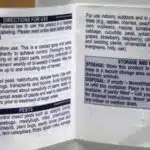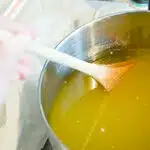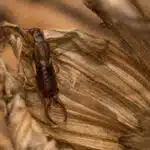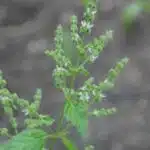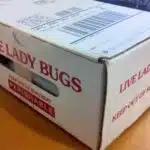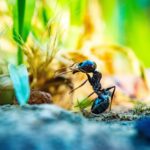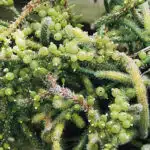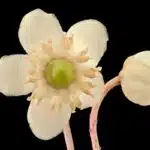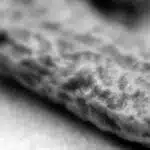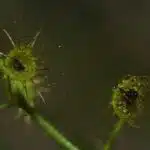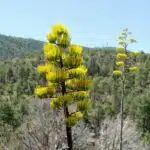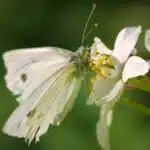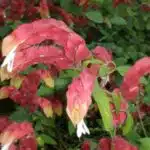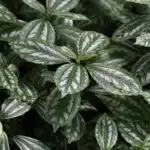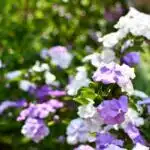As a plant care specialist, I have seen many gardeners struggle with the problem of scale on their plants. Scale insects are small, oval-shaped pests that attach themselves to the leaves and stems of plants, sucking out sap and causing damage to the plant. They can be difficult to spot at first since they often blend in with the plant’s natural coloration, but if left untreated, they can quickly multiply and cause serious harm to your plants. In this article, we will explore different methods for getting rid of scale on plants so that you can keep your garden healthy and thriving.
It is important to note that while there are chemical options available for treating scale infestations, we will focus on more natural remedies that are safer for both your plants and the environment. By using these methods consistently and taking preventative measures to avoid future infestations, you can effectively eliminate scale from your garden and enjoy healthy, thriving plants all year round. Let’s dive in!
Identifying Scale Insects
Every plant enthusiast knows the idiom, “prevention is better than cure.” This statement holds true for many gardening problems, including scale infestations. Scale insects are common pests that feed on the sap of plants, leading to stunted growth and reduced yield. Identifying scale damage early on is essential in preventing further damage to your beloved plants.
The scale insect life cycle consists of an egg stage, crawler stage, and adult stage. The crawler stage is the most mobile and destructive phase since it’s when they move around to find a suitable feeding site. Adult scales are immobile and shielded by a protective coating that makes it hard for pesticides to penetrate. To identify a scale infestation, look out for sticky residue or black sooty mold on leaves or stems. These are indications of honeydew excretion by the scales.
Scale damage can be detrimental to plants if left unchecked. In addition to reducing yields and stunting growth, it can lead to leaf drop, twig dieback, and even death in severe cases. Understanding how scale insects cause damage will help you take the necessary preventive measures against further infestation. The subsequent section will discuss this topic in-depth.
Understanding The Damage Caused By Scale
After identifying scale insects on your plants, it’s important to understand the damage they can cause. Scale insects are known for sucking the sap from plant tissue, which can lead to stunted growth and even death of the plant. This is because the insect’s feeding activity disrupts the normal process of photosynthesis, which is vital for plant growth.
To manage scale infestations, there are several plant scale management techniques that can be used. One effective method is to physically remove the scales from the plant using a soft-bristled brush or cloth soaked in alcohol. Another option is to apply insecticidal soap or oil directly on the scales, which will suffocate them and prevent them from reproducing. Additionally, introducing natural predators like ladybugs or lacewings can help control scale populations.
Prevention methods for scale infestations are crucial to maintaining healthy plants. It’s important to regularly inspect your plants for signs of infestation and take action immediately if any scales are found. Keeping plants well-watered and fertilized can also reduce stress and make them less susceptible to pest attacks. Furthermore, regularly cleaning pruning tools and avoiding over-fertilizing can help prevent attracting unwanted pests to your plants.
Prevention Methods For Scale Infestations
- Regular inspection of plants is an important part of preventing scale infestations, as it enables early detection of the pest.
- Maintaining a clean environment by removing any extraneous plant material or debris can help to reduce the chances of scale infestations.
- Biological control of scale infestations can be achieved by introducing natural predators such as ladybugs, lacewings, and parasitic wasps into the environment.
- Beneficial insects can be used to manage populations of scale and other soft-bodied pests.
- Pruning of infected plant parts is a simple and effective way to reduce populations of scale insects.
- Natural formulations such as horticultural oils or insecticidal soaps can be used to control populations of scale, but must be applied carefully to avoid damaging the plant.
Inspect Plants Regularly
To prevent scale infestations on plants, it is crucial to inspect them regularly. As a plant care specialist, I cannot stress enough the importance of early detection when dealing with these pests. Scale insects can quickly multiply and spread throughout the entire plant if left unchecked, causing significant damage and even death in severe cases.
One of the common signs of scale infestations is small bumps or raised areas on the stems or leaves of the plant. These bumps are often accompanied by a sticky substance called honeydew that attracts ants and other insects. Another sign to look out for is yellowing or wilting leaves, which could indicate that the scales have been feeding on the plant’s sap. By catching these warning signs early, you can take immediate action to treat your plants before the infestation worsens.
Regular inspections also allow you to monitor your plants’ overall health and catch any other potential issues before they become too severe. As someone who has a subconscious desire for serving others, I understand how frustrating it can be to see your beloved plants suffer from an infestation. By taking preventative measures such as regular inspection, you can keep your plants healthy and thriving for years to come without having to worry about pesky scale insects wreaking havoc on them.
Sanitation And Cleanliness
As a plant care specialist, preventing scale infestations is one of my top priorities. Regular inspections are essential, but it’s also important to maintain good sanitation and cleanliness practices to keep your plants healthy. Cleaning techniques such as wiping down leaves and stems with a damp cloth or spraying them with water can help remove any dirt or debris that might harbor insect eggs or larvae.
In addition to cleaning, practicing good plant hygiene is another crucial step in preventing scale infestations. This includes removing any dead or decaying plant matter from around the base of the plant, as well as regularly pruning back branches and foliage to promote air circulation. Overcrowded plants are more susceptible to insect infestations, so thinning out your collection periodically can also help prevent problems.
Overall, maintaining a clean and healthy environment for your plants is key in preventing scale infestations. By incorporating regular cleaning and good plant hygiene practices into your routine, you can help reduce the risk of pests taking hold and ensure that your plants stay vibrant and healthy for years to come.
Biological Control
As a plant care specialist, I always emphasize the importance of preventing scale infestations to keep plants healthy. Along with regular inspections and good plant hygiene practices, another effective method is biological control. This method involves introducing natural enemies of scale insects into the environment to regulate their population.
Biological control has its pros and cons. The use of natural predators or parasites can be an environmentally friendly alternative to chemical pesticides. It is also a sustainable solution that doesn’t harm other beneficial insects in the environment. However, it may not be effective for severe infestations or when multiple species of scale are present. Additionally, introducing non-native species for biological control can potentially lead to unintended consequences and disrupt the ecosystem.
There are several species that have proven effective in biological control of scale infestations. Ladybugs, lacewings, and parasitic wasps are some examples of predators that feed on scales at different stages of their life cycle. Meanwhile, predatory mites target specific species of soft scales and mealybugs. When considering biological control as a prevention method for scale infestations, it’s crucial to choose effective species that match the type of scale present and avoid any potential negative impacts on the environment.
Cultural Practices For Scale Control
Controlling scale insects on plants requires a comprehensive approach that involves various cultural practices. One of the essential practices is proper watering techniques. Overwatering can lead to an increase in humidity, which creates favorable conditions for scale insects to thrive. Therefore, it is crucial to avoid overwatering and ensure that the soil dries out slightly between watering sessions. Additionally, you can use a well-draining potting mix that allows excess water to drain away.
Another cultural practice that can aid in controlling scale insects is soil management. Scale insects prefer plants growing in nutrient-deficient soils. Therefore, it’s crucial to provide your plants with proper nutrition by using slow-release fertilizers or organic fertilizers rich in nitrogen, potassium, and phosphorus. Furthermore, you can also consider adding compost to your soil as it improves soil fertility and structure while promoting healthy plant growth.
In summary, cultural practices such as proper watering techniques and soil management are essential for controlling scale insects on plants. These practices help create unfavorable conditions for scale insects while promoting healthy plant growth. In the subsequent section, we will discuss manual removal of scale insects as another effective control measure against these pests.
Manual Removal Of Scale Insects
Scale insects are one of the most common pests that can infest and harm plants. They look like small bumps on the stems, leaves, and branches of plants. If left untreated, these pests can damage your plant’s health and make it more susceptible to other diseases. Manual removal is one effective way to get rid of scale insects.
Pruning techniques are an excellent way to remove scale insects from plants. To do this, you need to cut off the infected parts of the plant using sharp pruning shears. Be sure to dispose of these cuttings in a plastic bag so as not to infect other plants in your garden or home. You should also prune away any dead or damaged parts of the plant as they can attract insects and fungal diseases.
Another technique for getting rid of scale insects is by using protective barriers around your plants. These barriers can be made from materials such as sticky tape or petroleum jelly applied around the base of the stem or branches where scales are present. This will prevent them from climbing up and reinfesting your plant. You can also use horticultural oils, which act as a smothering agent by suffocating the scales.
In summary, manual removal through pruning techniques and protective barriers are effective ways to get rid of scale insects on your plants. However, if you prefer a more natural approach, homemade remedies for scale removal may be worth considering.
Homemade Remedies For Scale Removal
After manually removing scale insects from plants, it is important to consider long-term solutions for preventing their return. One option is to use DIY scale treatments that are simple and effective. Homemade remedies for scale removal can be made using organic ingredients found in the kitchen, such as dish soap and vegetable oil. These treatments work by suffocating and dehydrating the scales, ultimately killing them.
To make a DIY scale treatment, mix one tablespoon of dish soap with one cup of vegetable oil in a spray bottle. Shake the mixture well before spraying it directly onto the plant foliage where scales are present. After applying the solution, wait for thirty minutes before rinsing off with water. Repeat this process once a week until all scales have been removed.
Another effective method for organic scale control is using horticultural oils. Horticultural oils work by smothering the scales and preventing them from reproducing. These oils are safe to use on most plants but should be tested on a small area first to ensure there is no damage or discoloration to the foliage. When applying horticultural oils, read and follow all label instructions carefully to ensure proper application and safety precautions.
Transitioning into the subsequent section about ‘using horticultural oils to control scale’, it is important to note that while DIY remedies may work for some cases, they may not be enough for severe infestations. In these cases, using horticultural oils may be necessary for successful scale control.
Using Horticultural Oils To Control Scale
- Horticultural oils are beneficial for controlling scale on plants as they provide a non-toxic solution that eliminates insects on contact.
- Common types of horticultural oils used in pest management are neem oil, mineral oil, and petroleum oil.
- Neem oil is derived from a tree and contains azadirachtin, which can repel and disrupt the growth of insects.
- Mineral oil is derived from petroleum and is effective in controlling scale by smothering the insects and disrupting their respiration.
Benefits Of Using Horticultural Oils
Horticultural oils are an effective solution to get rid of scale on plants. These oils come with numerous benefits, making them a popular choice amongst plant care specialists. One significant benefit of using horticultural oils is that they are eco-friendly and do not harm the environment or the plants themselves. Additionally, these oils are safe for humans and animals, making them a preferable option over chemical pesticides.
The application techniques of horticultural oils are also straightforward and easy to use. One can apply the oil by spraying it directly onto the plant, ensuring that all parts of the plant receive proper coverage. Horticultural oils work by suffocating and dehydrating scale insects, leading to their ultimate demise. Moreover, horticultural oils are ideal for use in both indoor and outdoor settings.
In conclusion, using horticultural oils is an excellent way to control scale on plants due to their numerous benefits and easy application techniques. These oils provide an eco-friendly solution that is safe for both humans and animals while working effectively against scale insects. By incorporating these oils into your plant care routine, you can ensure healthy growth and development of your beloved plants.
Types Of Horticultural Oils
As a plant care specialist, it is essential to know the different types of horticultural oils available to control scale insects. There are two main types of horticultural oils: petroleum-based and vegetable-based oils. Petroleum-based oils are more effective in controlling pests, but they are not eco-friendly and can harm the environment. Vegetable-based oils, on the other hand, are safer for the environment and humans but may require more frequent application to achieve the same level of effectiveness.
Application methods for horticultural oils vary depending on the type of oil used. Petroleum-based oils require dilution before application, while vegetable-based oils can be used directly without dilution. Regardless of which type of oil is used, it is crucial to ensure that all parts of the plant receive proper coverage during application to effectively suffocate and dehydrate scale insects.
When comparing their effectiveness against scale insects, both petroleum-based and vegetable-based horticultural oils have been shown to be highly effective. However, it is important to note that some scales may be resistant to certain types of oil. Therefore, it may be necessary to alternate between different types of horticultural oils or use a combination of methods for optimal control. Overall, incorporating horticultural oils into your plant care routine can provide an effective and eco-friendly solution for controlling scale insects on your beloved plants.
Beneficial Insects For Scale Control
In the world of horticulture, the presence of scale insects can be a persistent problem for gardeners. These tiny pests attach themselves to plants and feed on their sap, causing damage to leaves, stems, and flowers. If left unchecked, they can even cause the plant to die. However, there are several ways to control and eliminate scale on plants without resorting to harmful chemicals.
One effective method is through the use of beneficial insects such as predatory wasps and ladybugs. These natural predators consume scale insects as part of their diet and can help keep infestations under control. By introducing these beneficial insects into your garden, you can reduce or even eliminate the need for chemical treatments.
Another alternative method for controlling scale is by using sticky traps or pheromone traps. Sticky traps work by trapping adult scales that fly around while pheromone traps attract male scales with a synthetic hormone which disrupts their mating cycle.
- Keep your plants healthy
- Prune off heavily infested areas
- Use soap sprays regularly
- Avoid over-fertilizing
- Practice good sanitation
By using these methods, you can effectively control scale on your plants without harming beneficial organisms or exposing yourself and others to harmful chemicals. In addition to these methods, neem oil has been shown to be a safe and effective treatment for scale insect infestations. In the next section, we will explore how neem oil works and how it can be used as an effective treatment option in detail.
Neem Oil As A Safe And Effective Scale Treatment
Neem oil application has become a popular choice among gardeners when dealing with scale infestations on plants. This oil is derived from the seeds of the neem tree and has been used for centuries as a natural remedy for various ailments. The oil contains azadirachtin, which acts as an insecticide and disrupts the growth and development of scale insects.
Studies have shown that neem oil effectiveness in controlling scale infestations is high. It works by suffocating the insects and disrupting their life cycle, eventually leading to their demise. However, it is important to note that neem oil should be used with caution as it can also harm beneficial insects such as bees if not applied properly.
When using neem oil for scale control, it is recommended to dilute it with water and apply it directly onto the affected plant parts using a spray bottle or brush. It is best to apply it during the early morning or late evening when temperatures are cooler to avoid damaging the plant foliage. Neem oil application should be repeated every 7-14 days until all signs of scale infestation have disappeared.
Transition: While neem oil has proven effective in controlling scales on plants, there are other methods available such as soap sprays that can help in managing these pesky pests.
Soap Sprays For Scale Control
Neem oil is a natural and safe remedy for controlling scale infestations on plants. However, if you prefer an alternative solution, soap sprays can also be effective in managing these pests. Soap sprays work by suffocating the insects and removing their protective coating. They are also easy to make at home using a DIY soap recipe or purchasing organic soap options.
To create a DIY soap spray, mix one tablespoon of liquid dish soap with one quart of water. It is crucial to use mild, fragrance-free soap that does not contain additives that could harm your plants. Alternatively, you can purchase organic insecticidal soaps from garden centers or online retailers. When applying the spray, ensure to cover all parts of the plant thoroughly, including the undersides of leaves where scales often hide.
Using soap sprays for scale control is an excellent option for those who prefer natural remedies and want to avoid harsh chemicals. In addition to being affordable and easy to make at home, they are also environmentally friendly. However, it may not always be enough to eliminate an extensive infestation. If this is the case, consider trying garlic spray as a natural scale deterrent in the subsequent section.
Garlic Spray As A Natural Scale Deterrent
One of the most effective natural remedies for scale on plants is garlic spray. This solution works by suffocating and repelling the pests, making it difficult for them to cling onto the leaves and stems of your plants. However, if you’re not a fan of the pungent smell of garlic, there are alternative sprays that you can use.
Some gardeners prefer to use neem oil spray as an alternative to garlic spray. Neem oil is derived from the seeds of the neem tree and contains insecticidal properties that can kill scale insects while also repelling them. Another option is insecticidal soap spray, which kills scale by disrupting their cell membranes upon contact.
While garlic spray may be effective in preventing and controlling scale infestations, it’s important to note that it may not work on all types of plants or scales. Additionally, it may take several applications before you start seeing results. It’s also recommended to test any new solution on a small portion of your plant first to ensure that it doesn’t cause any damage.
Transition: While natural remedies like garlic spray can be effective in controlling scale infestations, there are other options available such as alcohol sprays. Let’s explore how alcohol sprays work and their effectiveness in removing scales from your plants.
Alcohol Sprays For Scale Removal
Alcohol sprays for scale removal are generally composed of isopropyl alcohol or ethyl alcohol, both of which are effective in killing scale insects. Studies have indicated that alcohol sprays are effective in controlling scale insects, however, the effects may be short-lived and repeated applications may be required. In addition, it is important to note that alcohol sprays may have the potential to damage certain plants, and therefore it is important to research the species of plant prior to application. Lastly, it is important to consider the environmental impact of alcohol sprays, as they can be toxic to beneficial insects and other wildlife.
Alcohol Spray Ingredients
Using alcohol to kill scale is a common method used by many gardeners and plant enthusiasts. Alcohol sprays are effective in removing the pests without harming the plants. To prepare an alcohol spray, you will need 70% isopropyl alcohol and water in equal parts. You can also add a few drops of dish soap to the mixture, which helps the solution stick to the scale insects.
When preparing an alcohol spray, it’s important to mix the ingredients thoroughly. The solution should be sprayed directly onto the affected areas of the plant. Be sure to cover all parts of the plant where scale insects are present, including the undersides of leaves and stems. It’s best to apply the solution on a cloudy day or during early morning when there is no direct sunlight. This is because alcohol evaporates quickly under direct sunlight and may damage your plants.
Alcohol sprays for scale removal are a natural and inexpensive way to eliminate pests from your plants. However, it’s important to remember that prevention is better than cure. Regularly inspecting your plants for signs of infestation and maintaining proper care practices such as watering, fertilizing, and pruning can help prevent scale insects from attacking your plants in the first place. By following these tips, you can ensure that your plants stay healthy and free from pests all year round.
Effectiveness Of Alcohol Sprays
When it comes to removing scale insects from plants, alcohol sprays are often considered as a natural and effective solution. However, it’s important to understand the effectiveness of alcohol sprays in eliminating these pests. While alcohol sprays can be successful in killing scale insects, they may not be the only solution available. Gardeners and plant enthusiasts should explore other alternatives for removing scales before resorting to alcohol sprays.
Moreover, safety concerns with alcohol sprays must also be taken into consideration. Alcohol is highly flammable and may pose a risk if used near open flames or other heat sources such as space heaters or stoves. Additionally, using too much alcohol can cause damage to the plants’ foliage, resulting in brown spots or leaf drop. It’s crucial to follow proper guidelines when using alcohol sprays and take necessary precautions to ensure safety.
In conclusion, while alcohol sprays can effectively remove scale insects from plants, it’s important to weigh their effectiveness against other alternatives and consider safety concerns before use. Plant care specialists should always advise gardeners and plant enthusiasts on the best course of action based on individual needs and circumstances. By utilizing safe and effective methods for pest control, gardeners can maintain healthy plants free from harmful pests year-round.
Hydrogen Peroxide For Scale Elimination
To effectively eliminate scale on plants, there are various methods that can be used. One of the most popular methods is using hydrogen peroxide. Hydrogen peroxide is a powerful oxidizer that helps to break down the waxy coating that protects the scale insects, making it easier to remove them from the plant.
Hydrogen peroxide is very effective at eliminating scale insects from plants. However, it may not be suitable for all types of plants. For instance, some plants may be sensitive to hydrogen peroxide and could become damaged if it is applied in high concentrations. Additionally, hydrogen peroxide may not be as effective against larger or more mature scale insects.
If you prefer hydrogen peroxide alternatives or if your plant is not suitable for its use, there are other options available. Commercially available insecticides such as neem oil or insecticidal soap can also help to eliminate scale insects from your plants. It’s important to note that these treatments should be used with caution as they can also harm beneficial insects such as bees and ladybugs. Therefore, it’s always best to read the label and follow instructions carefully before applying any treatment to your plant.
Transition: While hydrogen peroxide and commercial insecticides can be effective for eliminating scale on plants, sometimes these treatments may not be enough for severe infestations. In such cases, commercial scale treatments may be necessary for complete eradication of the pests.
Commercial Scale Treatments
Hydrogen peroxide is a useful tool for eliminating scale on plants, but it may not always be the best option. Commercial scale treatments offer another approach to managing this problem, and it is worth considering the pros and cons of each method before making a decision.
One benefit of commercial scale treatments is that they are often more effective than hydrogen peroxide. They can also be less time-consuming, as you do not need to mix anything yourself or apply the treatment directly to each affected area. However, these treatments can be expensive and may contain harsh chemicals that could harm your plants if used improperly.
When deciding between hydrogen peroxide and commercial scale treatments, cost comparison is an important factor to consider. While hydrogen peroxide is relatively inexpensive and widely available, commercial scale treatments can vary greatly in price depending on the product you choose. It is also important to factor in any additional costs associated with using these products, such as protective gear or specialized equipment.
Overall, both hydrogen peroxide and commercial scale treatments have their advantages and disadvantages. As a plant care specialist, it is important to weigh these factors carefully when choosing which method to use. By doing so, you can ensure that you are providing your plants with the best possible care while minimizing any potential risks associated with scale removal.
When it comes to monitoring and maintaining scale-free plants, there are several steps you can take to prevent this problem from returning. Regularly inspecting your plants for signs of infestation is key, as catching any issues early on can make them much easier to manage. Additionally, keeping your plants clean and well-maintained can help discourage pests from taking up residence in the first place. Finally, consider implementing preventative measures such as introducing natural predators or using insecticidal soap on a regular basis. By taking these steps, you can help ensure that your plants remain healthy and free of harmful pests over the long term.
Monitoring And Maintaining Scale-Free Plants
As a plant care specialist, it is important to monitor and maintain scale-free plants. Scale insects are pests that feed on plant sap, causing damage to the leaves, stems, and branches. They can also attract other pests such as ants and fungi. However, by keeping plants free of scales, you can enjoy numerous benefits.
The benefits of scale-free plants are two-fold: healthier plants and longer-lasting blooms. When scales are present on a plant, they reduce its ability to photosynthesize properly, leading to stunted growth or even death in severe cases. Additionally, scales secrete a sugary substance known as honeydew which attracts ants and other insects that can further damage the plant. By keeping your plants free of scales, you can ensure they grow strong and produce beautiful blooms.
One common mistake in monitoring scale is overlooking the undersides of leaves where they tend to gather. Scales are often mistaken for part of the plant’s natural texture or coloration, making them difficult to spot at first glance. Regular inspections of both top and bottom surfaces of leaves will help detect any presence of scales early on before they become a major problem. It is also important to use appropriate methods for removing scales such as pruning affected areas or using insecticidal soap.
By consistently monitoring and maintaining scale-free plants not only do you benefit from healthier plants with longer-lasting blooms but also avoid attracting additional pests that may cause further damage. Remember to inspect your plants regularly for signs of infestation and take necessary measures promptly to keep them healthy and thriving.
Conclusion
Scale insects are a common pest that can wreak havoc on the health and appearance of plants. Identifying these insects and understanding the damage they cause is crucial for effective management. Prevention methods such as proper plant care, regular monitoring, and introducing natural predators can help keep scale infestations at bay.
Cultural practices such as pruning and cleaning up fallen leaves can also aid in controlling scale populations. For manual removal, a soft-bristled brush or cotton swab dipped in rubbing alcohol can be used to physically remove the insects. Hydrogen peroxide sprays can also effectively eliminate scales.
While commercial treatments are available, it’s important to monitor and maintain scale-free plants using preventive measures to avoid future infestations. One interesting statistic shows that over 200 species of scale insects are known to infest ornamental plants alone, making it even more critical for plant care specialists to have a solid understanding of how to identify and control these pests. By implementing proper prevention methods and treatment strategies, plants can thrive free from damaging scale insect populations.
Image Credits
- “Scale Model of the B-24 Plant, 1941” by The Henry Ford (featured)



